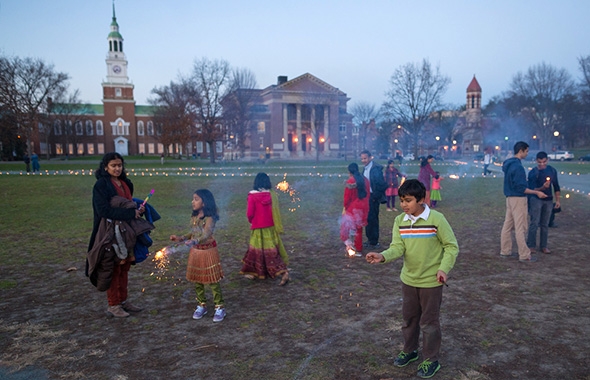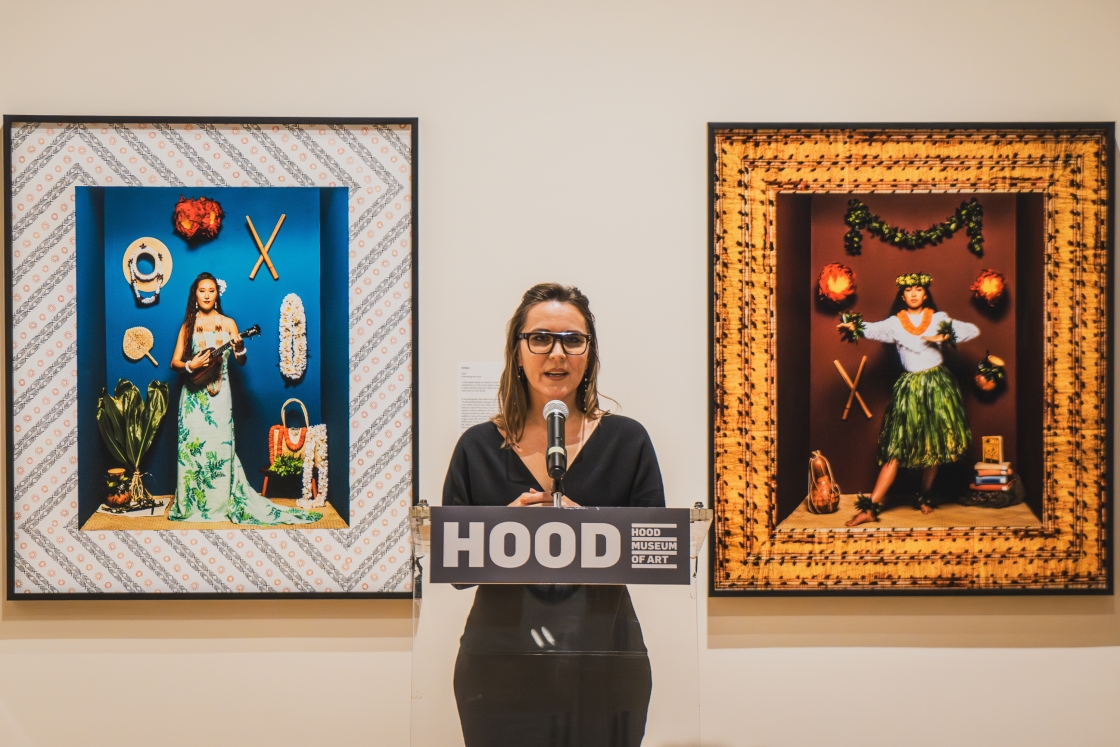Diwali, the Hindu Festival of Lights, runs from November 13 to 17 this year, but Dartmouth kicked off its celebration two days earlier, with 3,500 illuminated votive candles lining the Green as one of the events organized by Dartmouth’s Hindu student organization, Shanti.

While staying true to the traditions of the celebration, the student organizers opened the festivities to the entire Dartmouth community. A Hindu Puja religious service at Rollins Chapel was the first event. At dusk, the candle-lighting ceremony took place on the Green, followed by a cultural program at the Hopkins Center for the Arts featuring Raaz, a South-Asian fusion dance ensemble, and performances by student groups and community members. The evening’s celebration ended with a dinner in Alumni Hall.
“The best part of Diwali this year was the cooperation of the weather. In past years, we had to deal with wind, rain, and snow, but this year the candles all got lit and people were able to stand outside and really enjoy the beauty of the lights,” says Ramesh Govindan ’13, one of the organizers. “Diwali is a huge celebration for Hindus across the world, and we work hard to make it such a large-scale event here to honor that tradition and spread it to the Upper Valley community.”
Diwali is a five-day festival. The main festival is usually celebrated on the night of a new moon on one of the darkest days of the year. The use of light in the ceremony is meant to symbolize the triumph of light over darkness, knowledge over ignorance, and good over evil. Diwali is India’s most important holiday, and is to Hindus what Christmas is to Christians.
Buddhists, Sikhs, and Jains around the world also partake in Diwali celebrations, which are said to honor the stories of two reincarnations of the Hindu god Vishnu. Dartmouth has celebrated the holiday since 2006.

